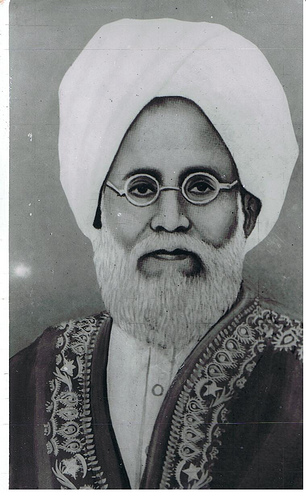
During 1895 and 1896, the Western press was blowing the Armenian-Turkish civil war out of all proportion, vilifying the Turks and accusing them of carrying out a genocide. When these exaggerated reports started appearing in the Indian newspapers as well, Allama could not restrain himself.
On 21 February 1896, in the Azad newspaper of Lucknow, Allama Shibli wrote a scathing response, in which he nailed the canard being spread by the Western press.
The information which is available about Armenia is mainly reported by English Newspapers. It is these English periodicals who along with their nations are determined to destroy the Turks. Ironically, strands of truth can be clearly discerned even in this false propaganda. The contradiction and inconsistencies contained in the telegrams issued by Reuters openly reveal what proportion of the news is false. Moreover, the manner of reporting and the tone and tenor in which the news is being reported reveals the true objective of these English newspapers.
This notwithstanding, it would be beneficial if we investigate what other nations think about Armenia and what is the information they have on the subject.
In this regard, the famous newspaper of Beirut Thamarat al-Funun wrote a detailed article and claimed that the French and German newspapers disagree with the English Newspapers on the subject. They contend that the Armenians themselves were the mischief-mongers, and whatever support the English extended to the Armenians by trying to portray them as victims, was only in line with their own self-serving policies.
The above-mentioned newspaper listed the names of many newspapers and journals who held a different viewpoint from what the British were trying to portray. The papers mentioned were: Deepa, Corresponece, DuLast, Andedanas, Yalh, NayeFaryad, Parmandnelat, Galu, (these are French and German Newspapers). But, due to not knowing the exact pronunciation, the veracity of the names of the newspapers cannot be ascertained. The Beirut newspaper has also published the translation of one article from the famous French newspaper “Alapati Sorwarnal”. Here we present an abstract of the translated article:
What we wrote sometime ago has now turned out to be true: that the peace and security of the world depends on respecting the sovereignty and ensuring the stability of the Turkish government; and the kind of interference in Turkish affairs being carried out by the British is harmful for the general peace and order in the world.
The unfolding current events have adequately proven that in fact the British are involved in provoking the Armenian movement. Even the rebellious crowds that surfaced in Turkey is because of British manipulation of the public. The British had kept silent for some days, but this silence was proof of their threat. However, when they broke their silence, rather than work for peace, they created greater sedition. Thus, the secretary in his speech said that external affairs are in a dangerous situation. Later, Lord Salsberry delivered a speech in Gildhall in which he made many contradictory statements and presented insufficient arguments. Since he was aware that the the entire Islamic world in general, and the people of India in particular, look up to the Sultan in Turkey, his speech also reflected some sort of leniency and flattery.
Italy and Austria are among the nations who backed the English in this matter, and they were egged on for this in the hope of illusory gains. It is obvious that Germany itself aloof from this dispute because of various reasons. Whereas Russia and France openly expressed their friendship with the Turkish Sultan. The French had always been wary of external interference in Turkey’s affairs in the name of reform.
On this occasion, it is appropriate to briefly mention the facilities which were provided to the Armenians by the Turkish government. This will show how factual the English newspapers were in their reporting of oppression of the Armenians.
The famous Egyptian newspaper “Al-Muayyad” wrote a detailed article with the title “The favours of the Turkish Sultan on Armenian community”; the article observes that:
In Constantinople alone the Armenians had 29 churches, 151 primary schools, 57 schools and one industrial training institute in which 425 male students are taught. For females, there are separate schools wherein 3000 students have been studying.
This apart, many Armenians study in Sultani (government) schools; in certain public colleges, a majority of the students are Armenian.
In Mohallah Qawli, there is a hospital exclusively for Armenians. Here, every day, bread and meat in reasonable quantities is supplied by the Sultan. Likewise, the same amount of meat and other food items are allocated for their orphanage. For the development of their education, four societies have been established in Constantinople. Among these, the one that is the biggest has won many accolades and monetary prizes from the Sultan. This society manages 35 general schools and ten girls schools all over Turkey, wherein five thousand boys and girls are educated.
More importantly, among students who are provided facilities from the education department to go to Europe for further studies, most of them are Armenian students whose costs are met either by the education department or directly by the Sultan’s exchequer.
Organizations, libraries, and educational societies which are established in different parts of Turkey are supported financially by the Sultan. –
(The above is a free translation of parts of the Urdu article by Allama Shibli Nomani, which appeared in the Azad newspaper of Lucknow, dated 21 February 1896)

Leave A Comment